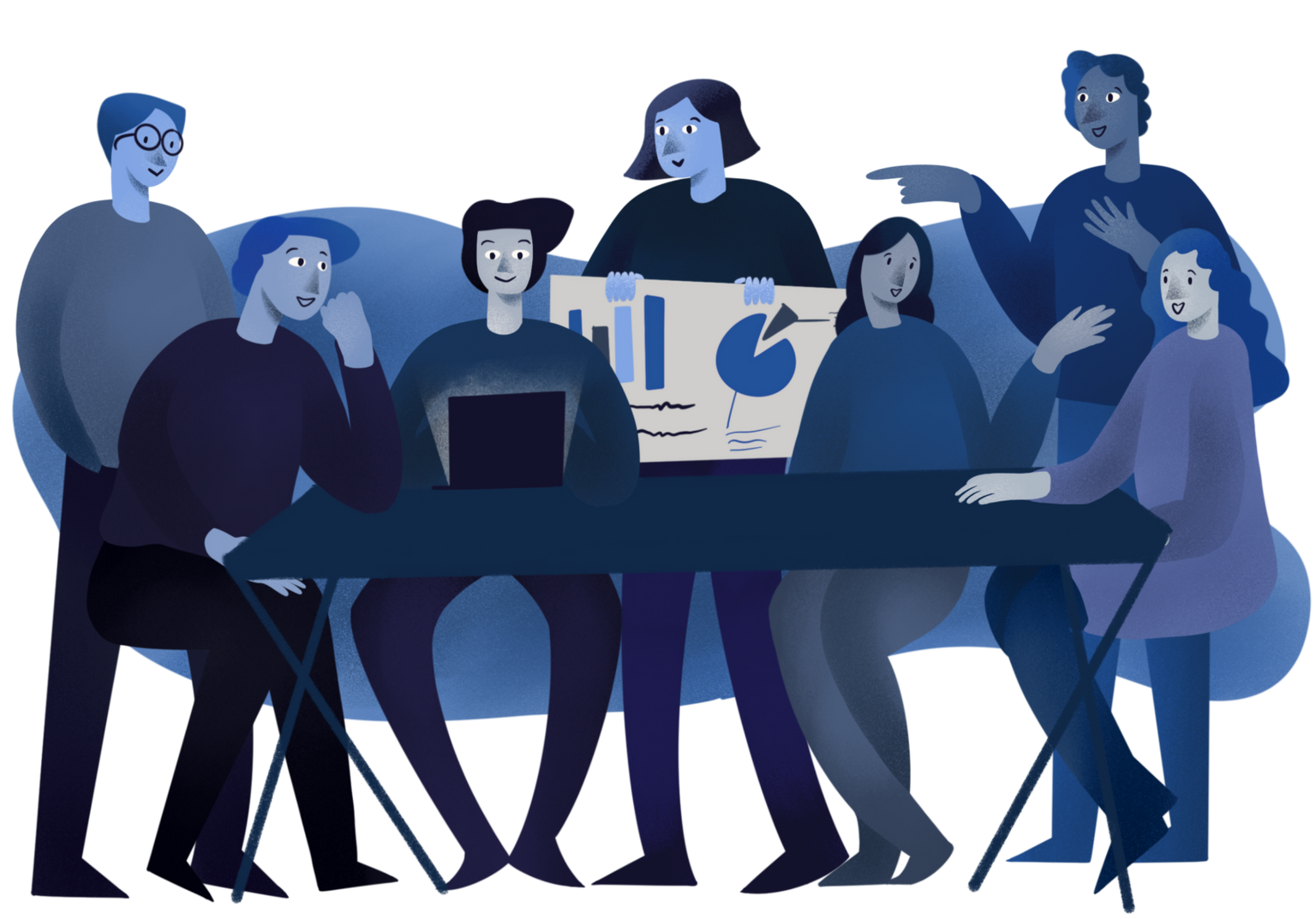How labour market has changed in the last few years
Academy
The last years redrawn our priorities map and the way we approach our jobs.

9 am-5 pm schedule? Long gone! Pyramidal structure? No, thanks! The mandatory presence? A bad memory!
To observe how the labour market has changed in recent years, paying attention to the changes in the hierarchy of our priorities is more than enough.

Nowadays, it’s crucial that businesses learn how to cater to the workers wellbeing and adapt to them. After all, an enterprise is made of its people, where else should we put our bets on?
Busy lives, exhausting working hours, and limited time for hobbies have gone out of fashion (and out of the doors) in this post-pandemic world.
We finally realized that neglecting one’s social and emotional needs doesn’t do any good to our lives. We all need to feel appreciated and fulfilled, both at work and in our daily lives.
This awakening has caused a strong shift in our priorities.
New generations of workers aren’t willing to accept toxic dynamics and unsustainable working hours, but they require recognition of their work and enough time to enjoy their private life.
Thanks to technologies, few expedients, and benefits, we can create healthier working environments.

How labour market has changed
Remote working
One of the changes that have transformed our working method it’s the adoption of remote working, essential and mandatory during the worst phases of the covid-19 crisis.
Agile working means giving people the possibility to choose where they work from and allows them to gain time that they would otherwise spend on travel. More time available means more time for oneself, and thus, more fulfilled and productive workers.
Being able to decide whether or not to be present in the office and being autonomous in handling assigned tasks also helps us to develop a greater sense of responsibility.
Workplaces
Having analysed the benefits of smart working, it’s important to understand how to make workplaces more welcoming.
Hot drinks, healthy snacks, fruit, water dispensers, fully equipped kitchens and relaxation areas are ones of the best ways to make the office a place where one can work in a relaxed atmosphere; blurring the line between personal and professional life.
Conceiving company spaces as one’s own implies a change in interactions with colleagues. Familiar environments allow us to feel more comfortable; shared break times and natural exchanges of opinions are the basis for transforming the team into a real corporate community.
A major limitation in many companies is the adoption of a rigid hierarchical system of out-of-date (fake) politeness and unnatural behaviours. Eradicating the pyramid system that has guided us for so long means allowing each team member to offer their skills to the team, regardless of their role. The relationship thus becomes a dialogue between peers.
Through collaboration, it is possible to learn and improve professionally, and humanly. It is not about subverting roles or losing authority, it is about transforming managers into leaders and making the working environment a place where everyone can make use of their skills and develop new ones through dialogue with different professionals.
Management feedbacks
Remote working and healthy environments are a good start, but they’re not enough.
It’s important to pay attention on how we feel within the team.
Although work is no longer the centre of our existence, it still is the place where people spend most of their time. Our job can help us express ourselves as thinking beings, define ourselves as people and increase our self-esteem.

Managerial feedbacks can pry our sensitivity, whether they are positives or negatives. Managerial feedback has two purposes: to modify a behaviour or, on the contrary, to reinforce an effective one. The latter, referred to as ‘positive reinforcement’, is even more valuable than the former. NLP (neuro-linguistic programming) studies the way thoughts, words and acts are interconnected and emphasises how important it is to learn to communicate in a functional manner.
The extraordinary power of words acting on the unconscious.
Too often underestimated, positive feedback affects the actions and mood of the recipient; positive mood and gratification are a recipe for productivity. Moreover, positive and constant feedback makes it easier to deal with negative feedback, which is also necessary.
The occupational phycologist
To talk about mental health is no longer a taboo, thanks also to the pandemic.
To date, there are still very few companies offering basic psychological support, however, if we pay attention to the actions of the best-known multinationals, we can begin to perceive a growth in the trend.
In addition to emphasising the ethical importance that such an offer brings, it is worth remembering that psychological support in the workplace suggests to the employee that the company really cares about his or her well-being.
Unresolved problems, misunderstandings and worries are not the right actors for a healthy working environment.
Let employees find a listening corner within the company walls, let them feel understood, explain them they are important to us, help them to grow professionally and as human beings.
At a walking pace
Labour market's future

Remote working, cozy spaces, and an occupational psychologist are the starting point for any company who is looking forward to building a prosperous future.
The key to this new way of conceiving the relationship with and within work is: humanity!
We have seen how important it is to remember to be philanthropic in many areas of our existence, and not only at work. There is no longer a need for formal, rigid and inflexible structures for a company to function well; rather, there is a need for humanity, understanding and sincerity.
It’s the future-oriented approach!
The one that allows us to work by task rather than by the hour; to focus on personal projects crafted by the individual; or even, the one that allows us to perform, at the very least, company tasks that are more in line with our character traits.
A more Tailor-made approach to understand that we are no longer just numbers but unique and inimitable human beings.